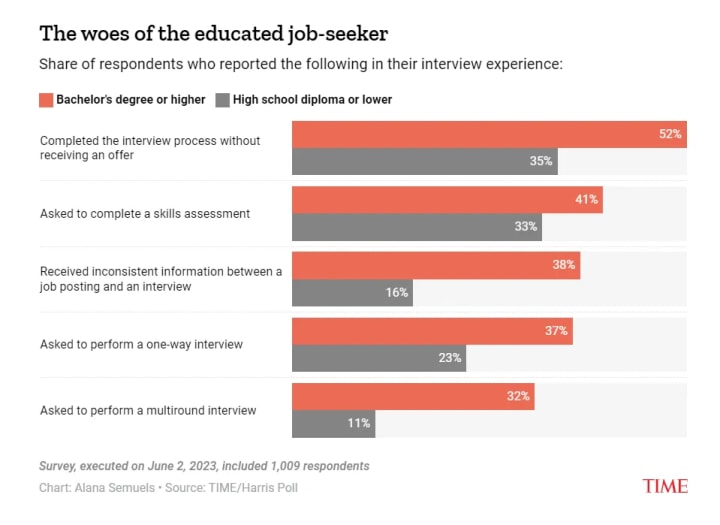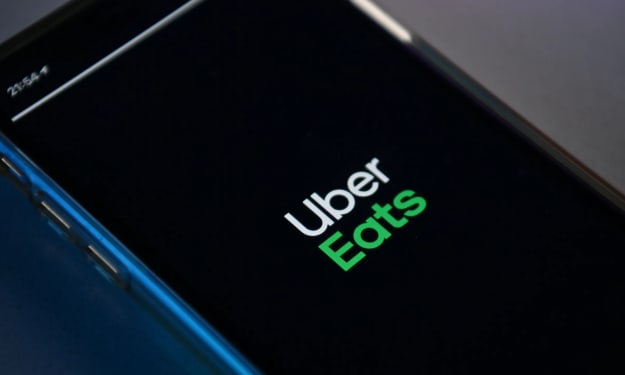How Job Hunting Is Becoming Pay-To-Win
Just when you think job hunting couldn’t get any worse

Job hunting has traditionally been viewed as a merit-based process, where candidates’ skills, experiences, and qualifications are the main factors determining their success in securing employment. However, recent layoff trends and rising rates of unemployment suggest that the job market may be evolving into a “pay-to-win” arena, where financial resources can significantly influence a job seeker’s chances of landing a job. So in this article, lets explore how job hunting is becoming pay-to-win.
Defining Pay-To-Win
The “pay-to-win” (P2W) model is a type of monetization strategy often used in the video game industry. Under this model, people can purchase advantages that significantly enhance their chances of winning or progressing faster in the game, compared to players who do not spend money.

A “pay-to-win” model has been both popular for revenue generation for video game developers and controversial among gaming communities for unethically alienating a portion of a game’s player base due to their unwillingness to pay more for a game. Games like Diablo Immortal, Star War Battlefront II (2017), and Call of Duty Modern Warfare 2 (2022) were notorious for implementing drastic pay-to-win models that unfairly impacted people’s gameplays.

Despite the controversy surrounding this practice, game developers have limited the range of these purchasable advantages to appease their respective communities. However, the model is still heavily criticized for creating an uneven playing field and an environment where the depth of one’s wallet can have a more significant impact on success than skill or strategy.
How Job Hunting Is Becoming Pay-To-Win?
With the recent rise of layoffs occurring throughout many different sectors and the difficulty of obtaining an entry level job, job hunting platforms are enticing job seekers to utilize their services in order to increase their odds of obtaining a job during a time when everyone is seeking employment.

Online job boards such as Indeed, Linkedin, Top Resume, Zip Recruiter, and Entertainment Careers are all advertising paid services and monthly subscriptions to allow people to network, gain exposure, and increase the odds of landing a job position under the guise of “investing in yourself”. These services can range from resume writing and optimization, access to exclusive job listings, enhanced visibility of applications to employers, to personalized coaching and networking opportunities.

While many job hunting platforms are free to use and encourage many job seekers to apply to their jobs of choice, they are advertising their services as a means to significantly increase your chances of securing the job of your dreams. This premise sounds extremely familiar to how video game developers advertise microtransactions to help you progress through the game.
How Successful Is Pay-To-Win?
As the job hunting space is becoming more competitive with every layoff and news of economic inflation, it is no secret that hiring managers are becoming more selective in their hiring practices with some resorting to crude and extreme measures to filter out the number of received applications.
As a result, the job hunting experience is becoming more and more miserable and it is causing hundreds of thousands of potential applicants feeling depressed and dejected in their efforts. Platforms such as LinkedIn and Indeed are taking advantage by subtly pushing them towards purchasing paid services with promises of quicker job attainment.

While there is inevitably a demand for services to aid job seekers in improving their search in a number of ways, there is still no guarantee that premium job-hunting services are 100% foolproof. Professional resume services can craft a polished and compelling resume that stands out, but if a dated applicant tracking system (ATS) fails to pick up info then it won’t be of any use.
Meanwhile, advanced degrees and professional certifications can significantly enhance a job seeker’s appeal to employers. However, the tuition and fees associated with obtaining these qualifications can be substantial, not to mention the cost of time spent studying is diverted away instead of earning an income. According to a TIME survey, even those with Bachelor’s degrees still have a more difficult time acquiring jobs and this forces many people to question if getting an advanced degree is worth it.

Considering how the success rate of these premium services will ultimately vary on your profession, experience, and luck, there is no denying that these platforms are capitalizing on people’s failures and misfortune by promising the potential for success.
The Ethical Implications Of Pay-To-Win
The pay-to-win nature of job hunting can raise significant concerns about equity, diversity, and inclusion in the workforce. It suggests a playing field that is not level, where access to employment opportunities is influenced by one’s financial capacity rather than solely on merit or qualifications. For new entrants, the pay-to-win model can act as a barrier, limiting their visibility and access to opportunities.

Photo by Magnet.me on Unsplash
When access to employment opportunities is contingent upon how deep a job seeker’s wallet is, it can exacerbate existing inequalities and limit the diversity of talent in certain industries. This not only affects those from economically disadvantaged backgrounds but can also hinder innovation and growth within organizations by narrowing the pool of potential candidates.
Should You Try To Pay To Win?
When it comes to the hellish landscape of job hunting, the notion of a “pay-to-win” environment is not only becoming increasingly relevant but also concerning especially if you are trying to enter the job market. While the pay-to-win model offers a new revenue stream for platforms, it fundamentally alters the dynamics of job hunting which prioritizes financial capability over merit.

This trend raises important questions about the future of work and the role of technology in either leveling the playing field or entrenching existing disparities. For the job market to remain a meritocratic system, there must be a careful balance between monetization strategies and ensuring equal access to opportunities for all job seekers. If not then we all risk forever working part-time jobs and freelancing positions struggling to make ends meet.
What do you think? If you liked what you read, be sure to like and follow for more related content!
About the Creator
Jay Kobayashi
A starving writer from LA who aspires to be plagiarized one day. I like to write about academic pieces that identifies philosophy and psychology in pop culture, and sometimes random fun pieces that interests me or the algorithm!






Comments
There are no comments for this story
Be the first to respond and start the conversation.